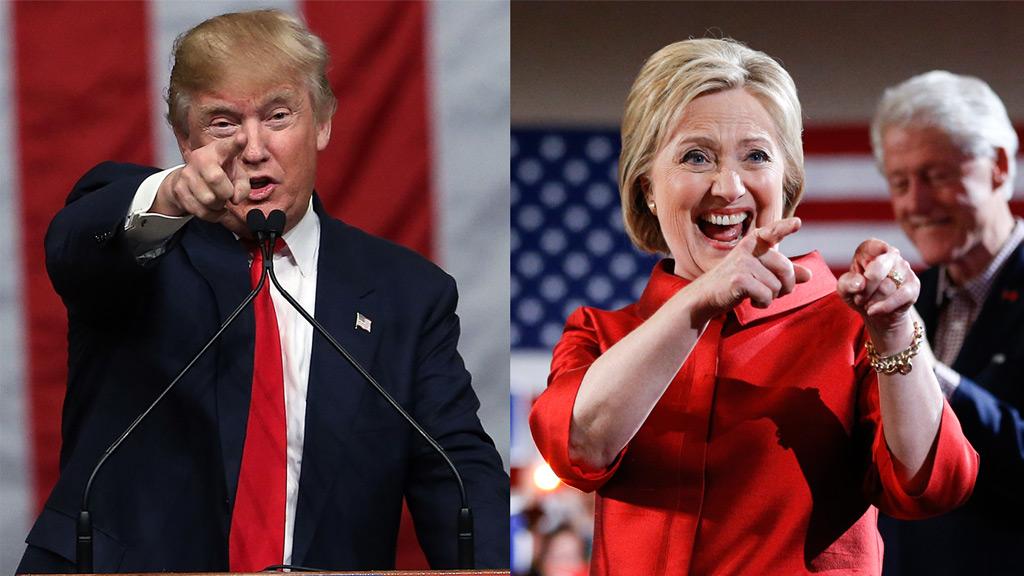MIAMI—Democrat Hillary Clinton and Republican Donald Trump seized decisive Super Tuesday victories with math and momentum on their side, leaving rivals scrambling for last-chance, long-shot strategies. For the Republican establishment, the search was increasingly dire.
Trump’s seven victories in states across the country amounted to a GOP establishment collapse with no clear sign of rapid recovery. While his rivals promised to fight on, the party remained deeply divided over the preferred Trump alternative. Marco Rubio won only liberal Minnesota. Sen. Ted Cruz took his home state of Texas, neighboring Oklahoma and Alaska.
Clinton also won seven of the nearly a dozen states that weighed in Tuesday. Rival Bernie Sanders won his home state of Vermont, as well as Minnesota, Oklahoma and Colorado.
In his victory speech, Trump sent a chilling warning to the GOP establishment. A moment after Trump professed to have good relationships with his party’s elite, he issued a warning to House Speaker Paul Ryan, who had declared earlier Tuesday that “this party does not prey on people’s prejudices.” Trump said that if the two don’t get along, Ryan is “going to have to pay a big price.”
Clinton, meanwhile, called for “love and kindness,” while her rival Bernie Sanders promised to fight on to the convention.
Both victors spoke from Florida, which did not vote on Tuesday, but where the general election is often won or lost.
Both Rubio and Cruz said they would fight on.
“Our campaign is the only campaign that has beaten, that can beat, and that will beat Donald Trump,” Cruz thundered to supporters gathered at the wood-paneled Redneck Country Club in Stafford, Texas.
Still, he'd been counting on more appeal in the Southern states and among evangelical Christian voters. Trump, who dubs his surging campaign the “Trump Train,” has derailed those plans.
Rubio and the other Republicans still in the race, John Kasich and Ben Carson, struggled Tuesday to convey optimism even as they vowed to fight on.
Simple math reinforces a bind for the Republicans who reject Trump, as the brash billionaire businessman carried seven states and continues to barrel toward the 1,237 delegates needed to secure the GOP nomination.
Trump won at least 203 delegates Tuesday. Cruz collected at least 144 delegates and Rubio picked up at least 71. Overall, Trump leads with 285 delegates, Cruz has 161, Rubio has 87, Kasich has 25 and Carson has eight. It takes 1,237 delegates to win the GOP nomination.
Increasingly, leading Republicans talk of a contested convention in July as their best remaining option for stopping Trump, whose divisive rhetoric about immigrants and ethnic and religious groups has some fearing a GOP wipeout in November.
Sanders assured supporters he'd take his fight to “every one” of the remaining contests. With a staggering $42 million raised in February alone, Sanders has the campaign cash to do just that—though Clinton is well on her way to the 2,383 delegates needed on the Democratic side.
Clinton collected wins in seven states, and Trump swept up victories in seven, including Virginia, another important general election battleground.
She is assured of winning at least 457 of the 865 delegates at stake Tuesday. Sanders gains at least 286. When including party leaders, Clinton has at least 1,005 delegates and Sanders has at least 373.
Clinton held on to older voters and strongly prevailed among Hispanics and African-Americans, according to exit polls conducted for The Associated Press and television networks by Edison Research. Trump, a political newcomer, pulled in two-thirds of voters looking to install an outsider in the White House, while GOP voters seeking an experienced candidate were split between Rubio and Cruz, both first-term senators.
Speaking from his gold-flecked Mar-a-Lago resort, Trump asserted that his candidacy is a “movement” and he claimed he would unify the party while training his fire on Clinton.
He said she should be disqualified from even running for office because she broke from government protocol by using a private email server while she was secretary of state.
Clinton tried to turn Trump’s “Make America Great Again” slogan on its head, saying the country instead must be made “whole again.”
“What we need in America today is more love and kindness,” she said. “Instead of building walls, we’re going to break down barriers and build ladders of opportunity and empowerment.”
Trump ridiculed her comments. “She’s been there for so long,” he said. “If she hasn’t straightened it out by now, she’s not going to straighten it out in the next four years.”





